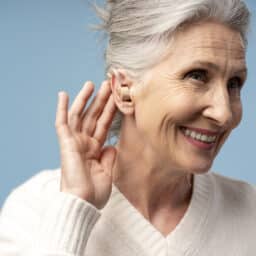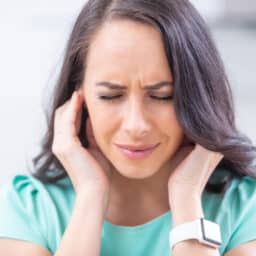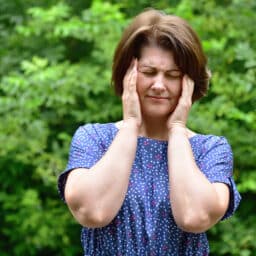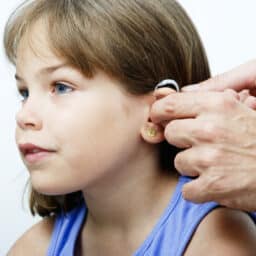When—And When Not—To Wear Your Hearing Aids

Approximately 28.8 million U.S. adults could benefit from the use of hearing aids. Knowing how to care for your hearing aids can help you ensure their longevity. One of the simplest ways to care for your devices is to know when and when not to wear them. When To Wear Hearing Aids Consistency is important…
Common Tinnitus Causes: From Hearing Loss to Jaw Problems

Tinnitus is that ringing, buzzing, hissing or whooshing sound in the ears that no one else can hear. For some, it’s a mild nuisance. For others, it can mess with sleep, focus and peace of mind. While the cause behind tinnitus is not always clear, there are a few common culprits. Common Causes Behind Tinnitus…
What Does Tinnitus Sound Like?

If you’ve ever heard a persistent sound in your ears that no one else seems to notice, you’re probably not imagining things—and you’re not alone. This symptom is called tinnitus. Tinnitus is the perception of sound with no external source. It’s not a disease itself but a symptom of underlying conditions like hearing loss or…
Can I Have Tinnitus in One Ear?
Unilateral tinnitus can develop for a variety of reasons ranging from medical conditions to lifestyle factors. Some of the most common causes include: Diagnosing and Managing Unilateral Tinnitus If you are experiencing tinnitus in one ear, it’s important to see a doctor. Ear, nose and throat specialists may use hearing tests, imaging scans and blood…
What to Know About Diplacusis

Diplacusis, also known as “double hearing,” is a condition that causes sounds to be heard at different pitches or times in each ear. While commonly linked to hearing loss, diplacusis can affect anyone and may be more prevalent than people realize. What Is Diplacusis? Diplacusis occurs when the ears process sound inconsistently. The condition is…
Impact of Hormones on Hearing Loss
People may not often think about their hearing health, let alone how hormonal changes may impact it. Interestingly, research suggests that fluctuations in hormone levels, especially estrogen, may impact how well people can hear. The Link Between Hormones and Hearing Hormones act as chemical messengers that influence many bodily functions, including circulation, nerve function and…
How to Enjoy Concerts with Hearing Loss

According to the National Institute on Deafness and Other Communication Disorders, “One in eight people in the United States (13 percent, or 30 million) aged 12 years or older has hearing loss in both ears, based on standard hearing examinations.” If you’re among this population and you’re planning to see your favorite musical artist live…
Recognizing Hearing Loss in Children

Newborn hearing screenings identify most cases of hearing loss early on, but some forms of hearing loss may develop later due to genetic factors or progressive conditions. Here are some signs to watch for in infants, toddlers and older children to help ensure timely diagnosis and treatment. Hearing Loss Indicators in Infants and Toddlers Infants…
What to Know About Smoking and Hearing Loss

In addition to increasing the risk for conditions such as cancer, heart disease, stroke, lung disease, diabetes and chronic obstructive pulmonary disease (COPD), smoking cigarettes has also been linked to hearing loss. Not only does smoking harm your own health, but it also affects those around you. Below, we delve deeper into the relationship between…
Holiday Travel Tips for Hearing Aid Users

Traveling during the holidays is a busy adventure. With swarms of people running to their gates at Hartsfield-Jackson Atlanta Airport, ordering food and choosing the perfect on-board beverage, it’s easy to feel a little stressed out during travel time. If you’re among the 15% of U.S. adults with hearing loss, this stress can often feel…



